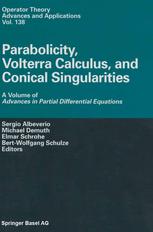

Most ebook files are in PDF format, so you can easily read them using various software such as Foxit Reader or directly on the Google Chrome browser.
Some ebook files are released by publishers in other formats such as .awz, .mobi, .epub, .fb2, etc. You may need to install specific software to read these formats on mobile/PC, such as Calibre.
Please read the tutorial at this link: https://ebookbell.com/faq
We offer FREE conversion to the popular formats you request; however, this may take some time. Therefore, right after payment, please email us, and we will try to provide the service as quickly as possible.
For some exceptional file formats or broken links (if any), please refrain from opening any disputes. Instead, email us first, and we will try to assist within a maximum of 6 hours.
EbookBell Team

0.0
0 reviewsPartial differential equations constitute an integral part of mathematics. They lie at the interface of areas as diverse as differential geometry, functional analysis, or the theory of Lie groups and have numerous applications in the applied sciences. A wealth of methods has been devised for their analysis. Over the past decades, operator algebras in connection with ideas and structures from geometry, topology, and theoretical physics have contributed a large variety of particularly useful tools. One typical example is the analysis on singular configurations, where elliptic equations have been studied successfully within the framework of operator algebras with symbolic structures adapted to the geometry of the underlying space. More recently, these techniques have proven to be useful also for studying parabolic and hyperbolic equations. Moreover, it turned out that many seemingly smooth, noncompact situations can be handled with the ideas from singular analysis. The three papers at the beginning of this volume highlight this aspect. They deal with parabolic equations, a topic relevant for many applications. The first article prepares the ground by presenting a calculus for pseudo differential operators with an anisotropic analytic parameter. In the subsequent paper, an algebra of Mellin operators on the infinite space-time cylinder is constructed. It is shown how timelike infinity can be treated as a conical singularity.